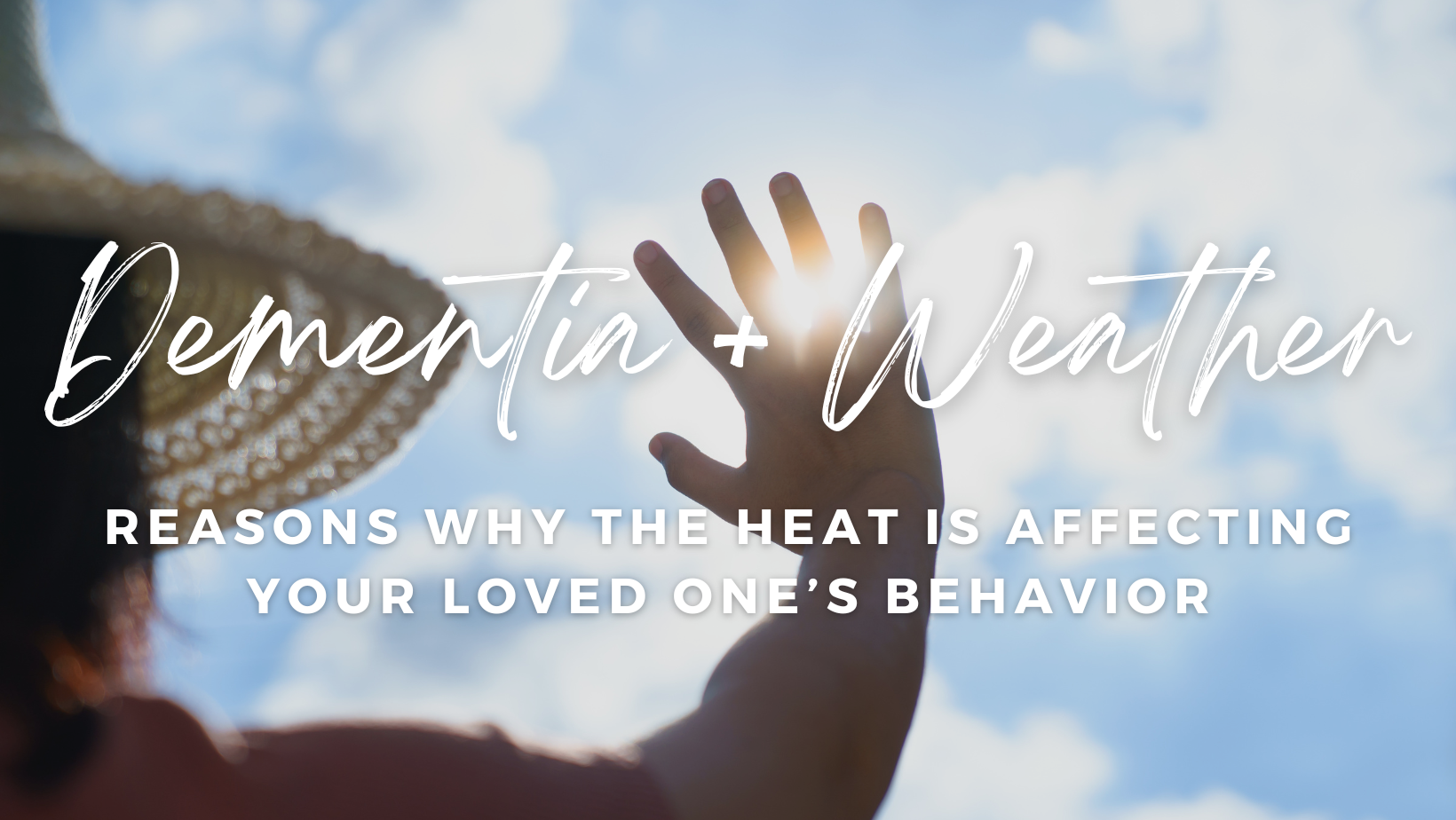Well, Arizonans, it’s official. We have reached peak temperatures of 100 degrees, and it will only get hotter from here! With summer on the verge, many professionals within the dementia care industry have shared one common concern from families and care partners: that their loved one’s symptoms seem to progress with the rising temperatures. Is this just a coincidence, or is there scientific reasoning behind this phenomenon? Here, we discuss the very real reasons why your loved one’s dementia might be affected by the weather.
Dehydration: The Greatest Risk Factor Of Warmer Weather

We all understand that drinking plenty of water is one of the fundamental keys to surviving the summertime. While warmer weather means more opportunities to enjoy the great outdoors, it also means a much higher risk of dehydration.
For our loved ones living with Alzheimer’s or other forms of dementia, becoming dehydrated can be especially dangerous, and The Alzheimer’s Society references how someone with memory loss might often forget to drink water. As a result, loved ones with dementia might experience headaches, dizziness, and increased confusion when compared to their typical behaviors and symptoms.
Reasons Why A Loved One’s Dementia May Be Affected By The Weather
Overall, a combination of heat, humidity, hydration, and general health and medications can have a significant impact on your loved one’s dementia-related symptoms and behavior. The Centers for Disease Control and Prevention cites the following three reasons why adults over the age of 65 are more prone to heat stress:
- Their bodies do not adjust as well to sudden or extreme changes in temperature.
- They are more likely to have a chronic medical condition that changes normal body responses to heat.
- They are more likely to take prescription medicines that affect the body’s ability to control its temperature or sweat.
Furthermore, Rocky Mountain Assisted Living identifies three of the most common types of behavioral triggers for adults living with dementia: confusion, pain or discomfort, and a changing or overwhelming environment. Therefore, given these risk factors and possible difficulties with communication, families and care partners might witness their loved one’s dementia being affected by the weather in the form of becoming more frequently confused, agitated, and exhausted.
Preventative Steps For Keeping Your Loved One Safe From Heat Exhaustion
The Centers for Disease Control and Prevention offers the following safety checklist for families and care partners who are concerned about how their loved ones’ dementia might be affected by the heat and other weather changes:
- If living separately, visit those in your care at least twice daily to keep a close eye on them.
- Make sure they are drinking enough water with encouragement and by keeping water, cups, and straws easily accessible and noticeable at all times.
- Ensure they have access to air conditioning.
- Help them keep cool by dressing them in light clothing, staying indoors during peak hours, and even offering a cool washcloth to drape on their neck or forehead.
- Always look for signs of heat stress, including dark-colored urine, less frequent bathroom trips, complaints of dry mouth and abdominal cramps, confusion, agitation, and exhaustion.
Did You Know?
Oakwood Creative Care is bringing back the JOY in aging! We believe a diagnosis should not have to define your life. Instead, we have devoted our mission to reigniting hope for caregivers and older adults with Alzheimer’s, dementia, and other age-related challenges. Click the button below to learn more about how we do this through our research-based, cutting-edge, creative care model found at each of our Day Clubs.




